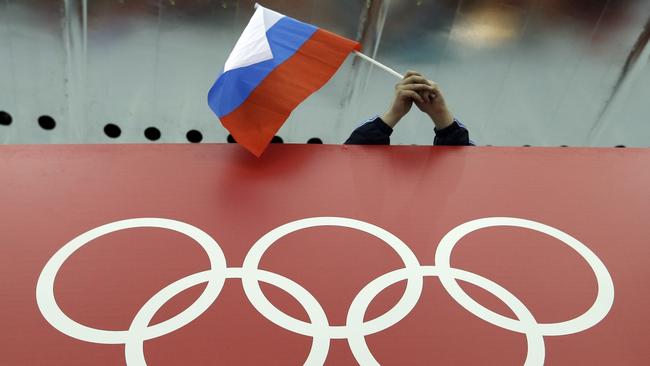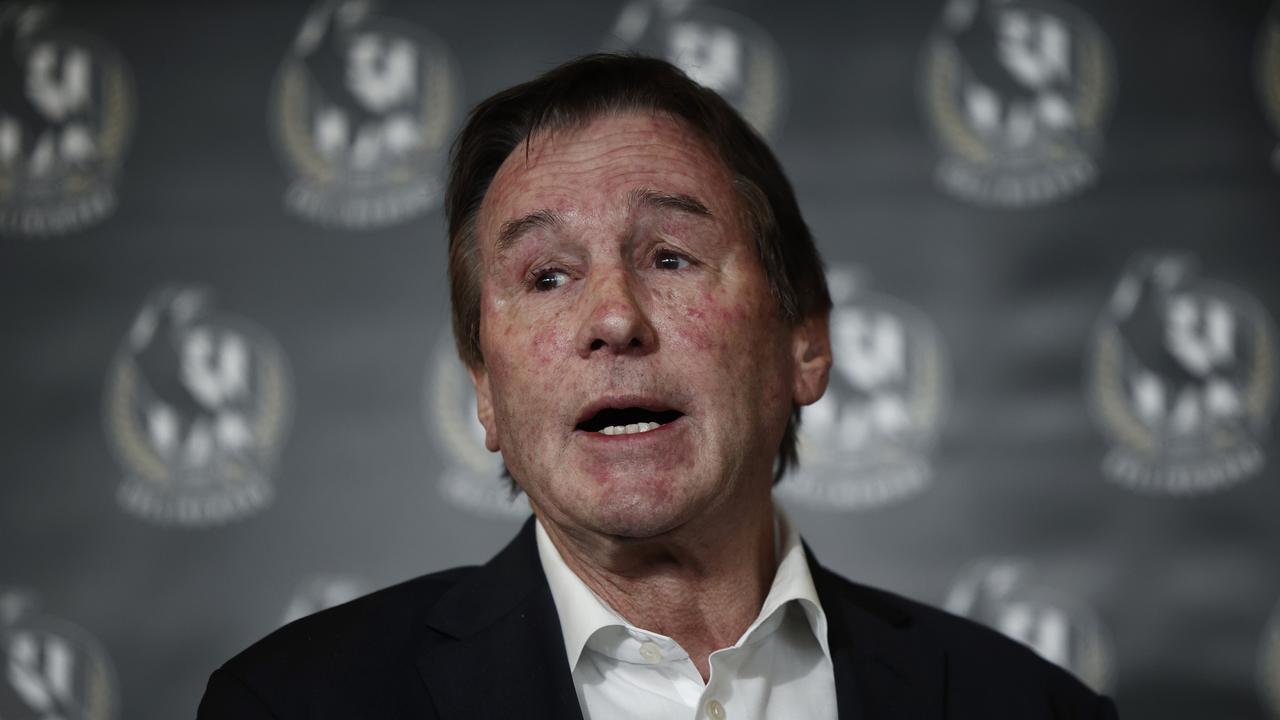WADA seeks four-year Russia ban over false doping data
The prospect of Russia being banned from next year’s Tokyo Olympics moved a step closer with charges racking up against Russia.

Sport
Don't miss out on the headlines from Sport. Followed categories will be added to My News.
A key World Anti-Doping Agency panel has recommended Russian athletes be forced to compete as neutrals at next year’s Olympics in Tokyo and other major events.
WADA’s compliance review committee has recommended a four-year ban on hosting major events in Russia and a ban for the same period on flying the Russian flag at major competitions.
Stream over 50 sports Live & On-Demand with KAYO SPORTS on your TV, computer, mobile or tablet. Just $25/month, no lock-in contract. Get your 14-day free trial and start streaming instantly >
The WADA executive committee will rule on the recommendations on Dec. 9. That follows a lengthy investigation into lab data handed over by Russia in January.
That was part of a deal to lift a suspension of the Russian anti-doping agency, and was meant to expose past cover-ups of drug use by Russian athletes. Instead, the WADA panel says data on hundreds of positive tests were removed.
Russia was officially banned from the 2018 Winter Olympics in Pyeongchang but allowed by the International Olympic Committee to send a 168-strong team under the name “Olympic Athlete from Russia.”
Those numbers were also restricted by IOC vetting of athletes’ history of drug- testing and whether they were implicated in any apparent cover-ups.

The panel’s recommendation would create a similar system lasting four years and covering not just the Tokyo Olympics but also the 2022 Winter Olympics in Beijing and world championships in numerous sports.
The expert panel’s advice could have serious implications for European soccer body UEFA if accepted in full by WADA’s executive committee.
The recommendations include stripping Russia of sports events already awarded “unless it is legally or practically impossible to do so.”
St. Petersburg in Russia is set to host four games, including a quarterfinal, at soccer’s 2020 European Championship which is being co-hosted in 12 different countries.
St. Petersburg was also chosen by UEFA two months ago to host the biggest club game in world soccer — the Champions League final — in 2021.
WADA said the most recent edits to the vast lab data archive were made in December 2018 and January this year, after Russia had agreed to hand over the data.
At the time, Russia was delaying the handover, saying WADA experts’ equipment needed to be certified under Russian law before it could take place.
“These activities were concealed by backdating of computer systems and data files in an attempt to make it appear that the Moscow data had been in their current state since 2015,” WADA said in a statement.
WADA added that messages were planted to implicate former lab director Grigory Rodchenkov, who later became a witness for WADA, and two other people. It didn’t name any athletes whose tests were covered up.
— with AP
Originally published as WADA seeks four-year Russia ban over false doping data


